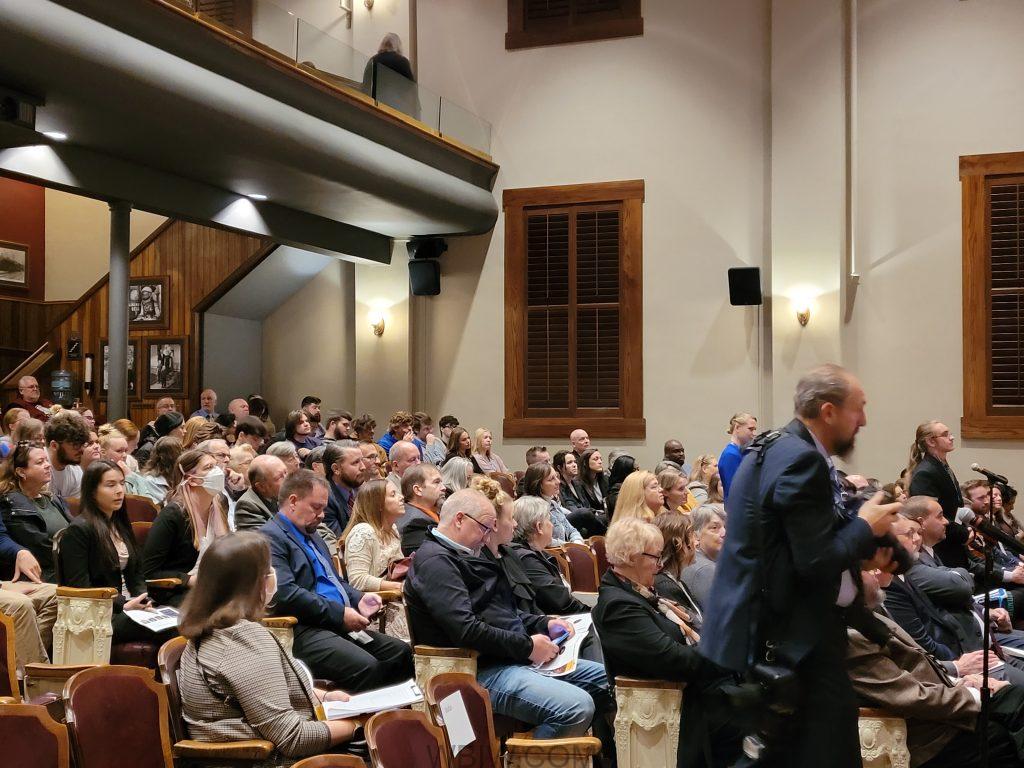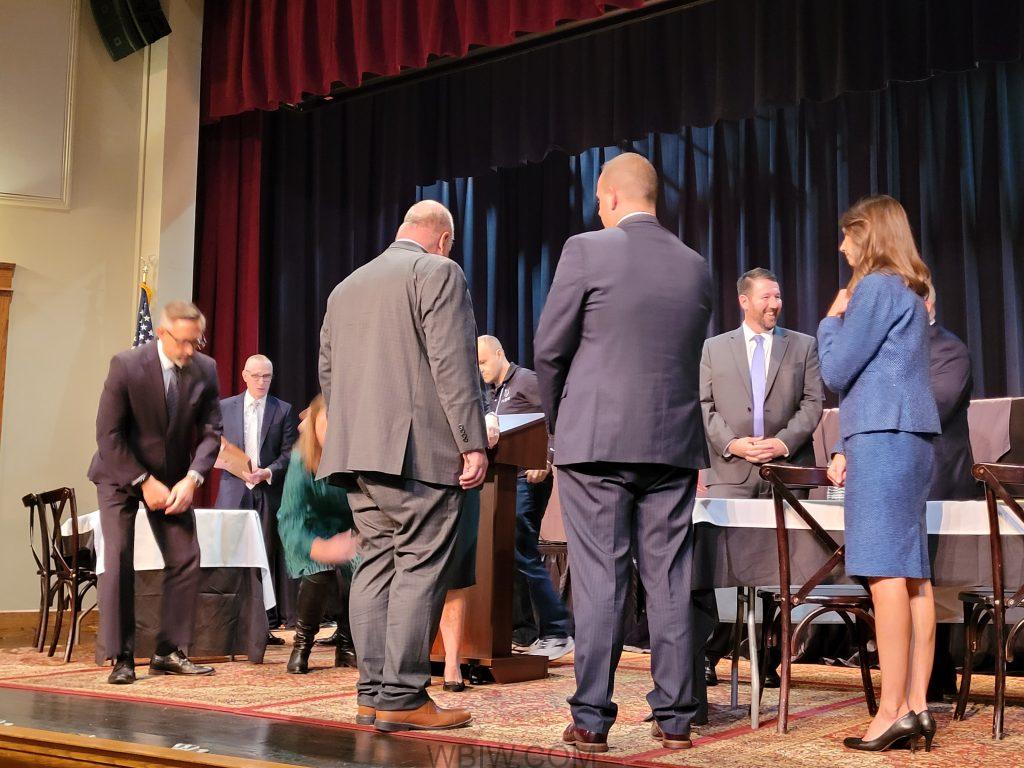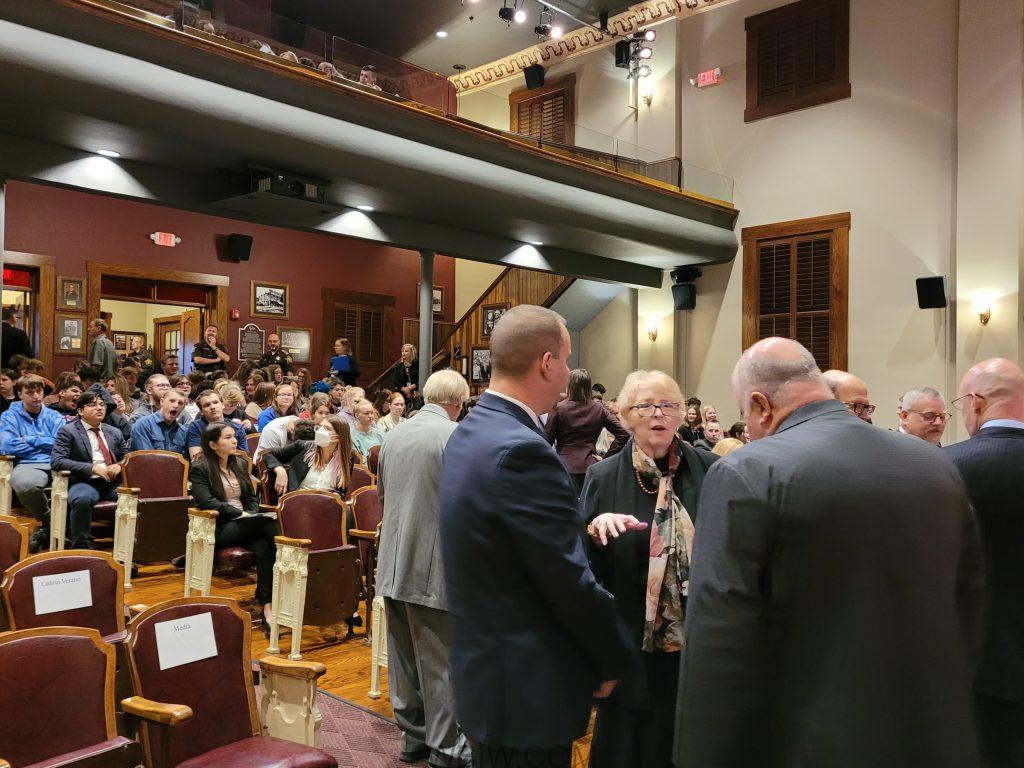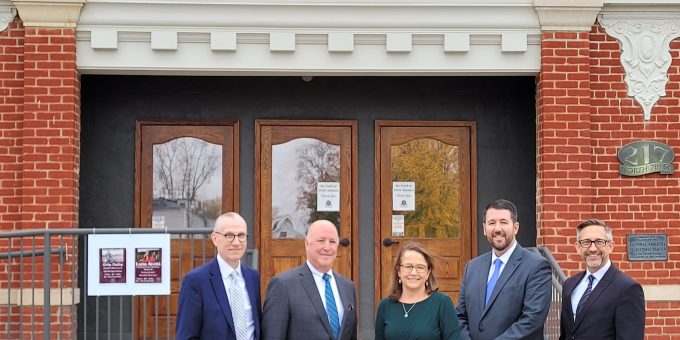
MITCHELL – The Indiana Supreme Court held a Traveling Oral Argument at the Mitchell Opera House Wednesday morning, to review the Christopher Harris v. State of Indiana case in front of students from Mitchell, Orleans, and Shoals High Schools.
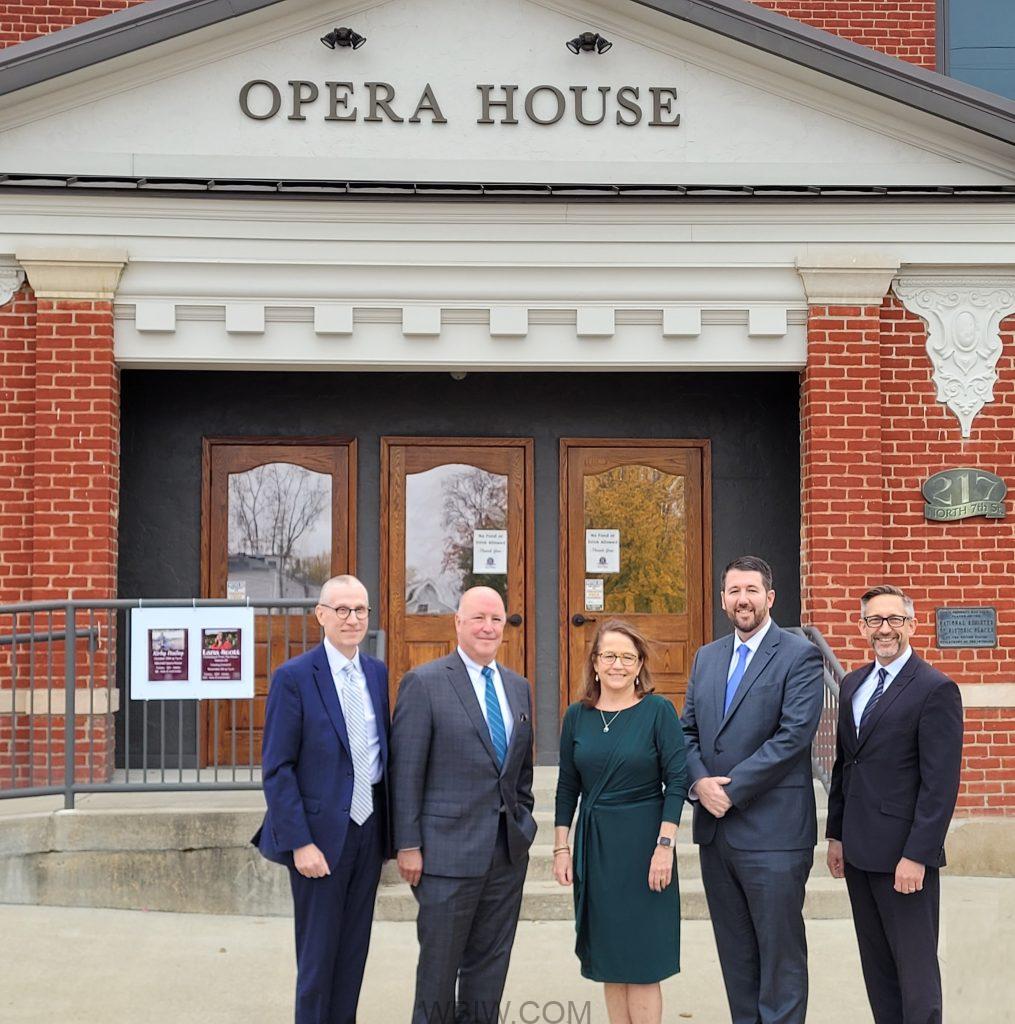
The traveling oral arguments program addresses state academic standards in U.S. Government and United States History. The argument process demonstrates the principles of due process, judicial review, and an independent judiciary.
Usually, oral arguments last 40 minutes to an hour. Each side has 20 minutes to argue. Typically the appealing party will open the argument, the other side then responds, and then the appealing party has the last word, which was the case at the Opera House.
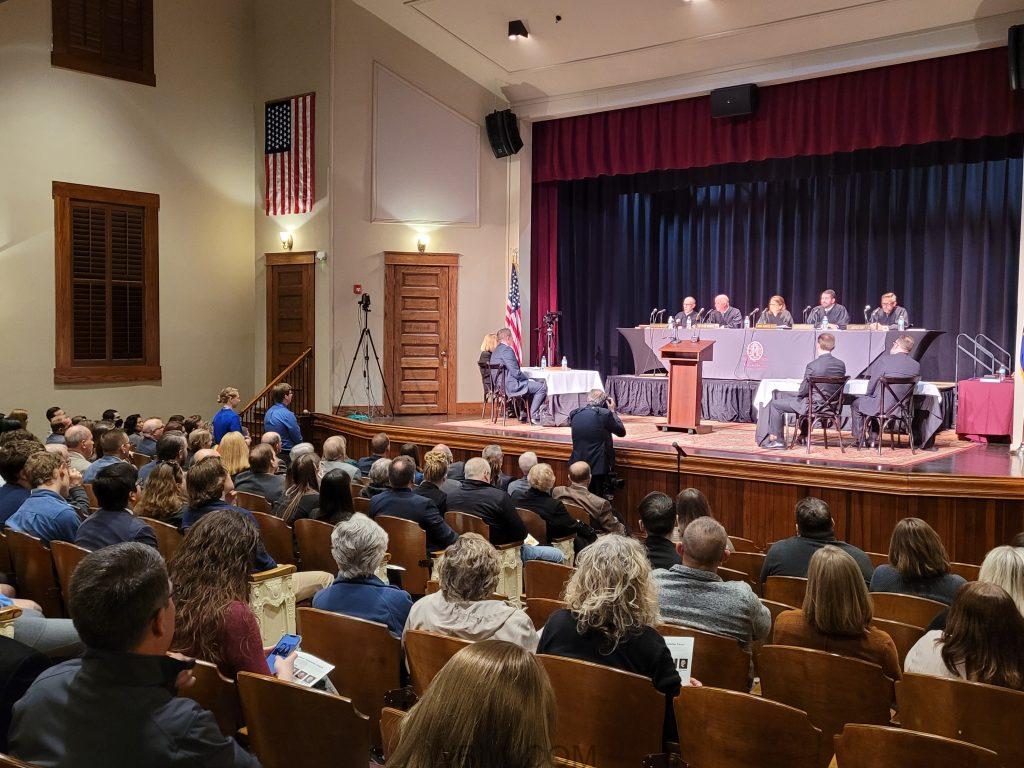
A group of Mitchell High School students was able to meet with the justices before the argument began, as well as one student, Emma Sowders, was named an Honorary Bailiff for the argument at the Opera House.
Christopher Harris began dating a woman in the summer of 2019. As the summer progressed, Harris began to think his girlfriend was cheating on him with one of her ex-boyfriends. He then confronted the ex-boyfriend in a parking lot at gunpoint and robbed him, taking a few dollars, and a gold chain.
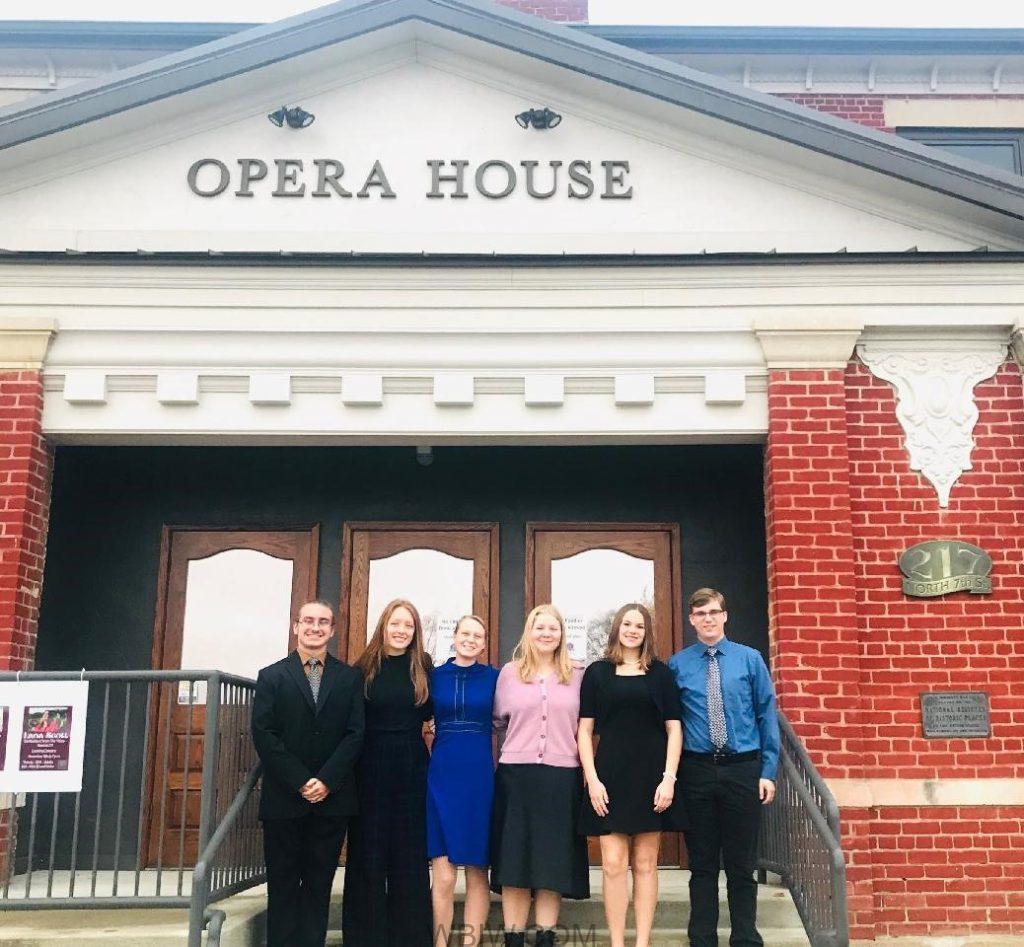
After a bench trial, the Marion Superior Court found Harris guilty of robbery and battery. Harris requested a jury trial on the charge that he was a habitual offender, but the trial court didn’t allow him to present evidence to the jury about the circumstances surrounding his convictions. The argument at the Opera House was to discuss the Court of Appeal affirming Harris’s convictions and sentence. Harris has since petitioned the Indiana Supreme Court to accept jurisdiction over the appeal.
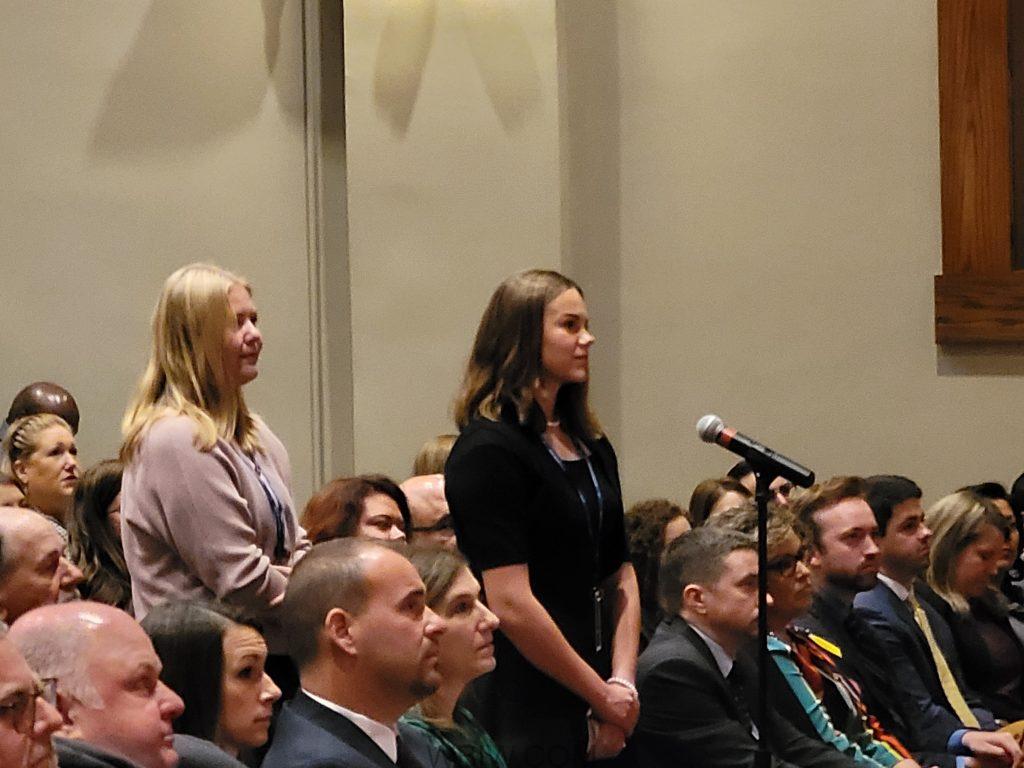
Following the discussion, the court opened the floor for questions from students and audience members about any topic, excluding the Harris v. State of Indiana case. Questions ranged from what made the current members of the supreme court decide to choose this career path, to what they might have considered doing had they not taken the judicial route.
One question that stood out was by Mitchell Student Elizabeth Gillespie, who asked if the judges find it difficult to be objective during cases. Supreme Court Justice Derek Molter explained the importance of remaining balanced when it comes to cases, and not allowing their personal lives or beliefs to control what needs to become of an issue.
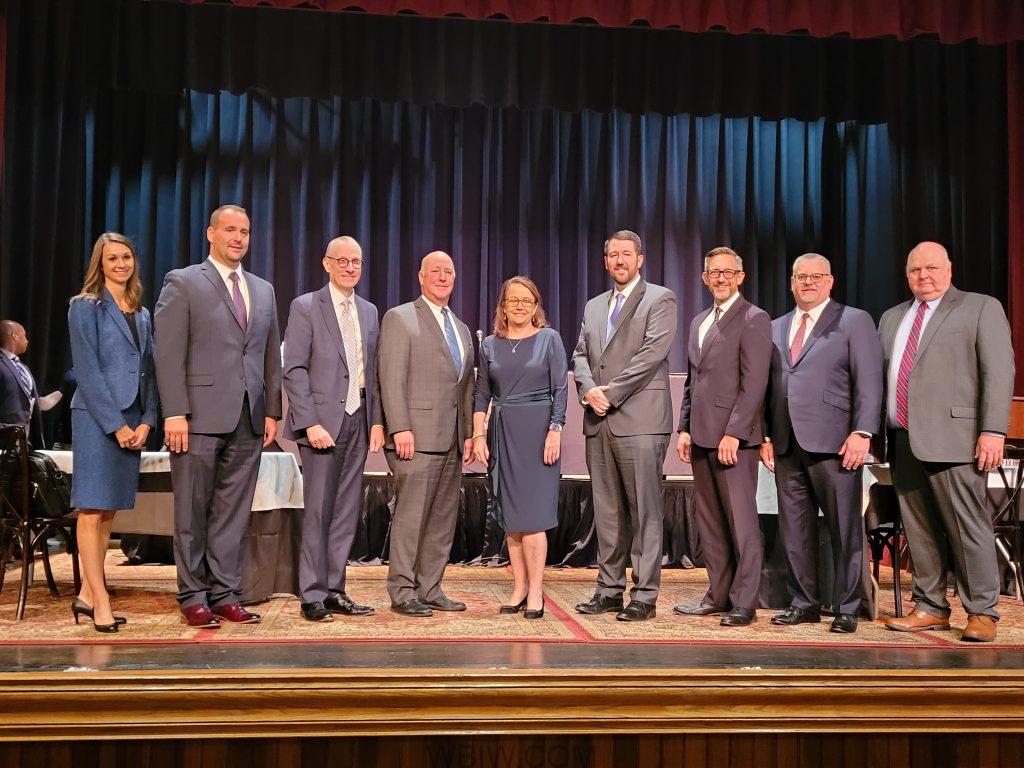
“This position requires us to be fair, and sometimes folks get confused with objectivity, it doesn’t mean that our minds are blank slates, we have a lot of different beliefs and experiences with this group, and we can use to have discussions about issues, to find the best results,” said Justice Molter.


